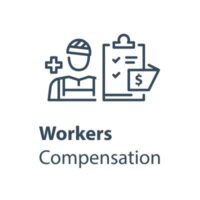Types of Workers’ Compensation Disability Benefits

Over the last ten years, the average lost wage replacement benefit has decreased 17 percent. Repeated workers’ compensation insurance premium declines are part of the problem. Less money in the system means lower individual benefits. At the same time, the workers’ comp initial denial rate has climbed. Sadly, many of these workers give up and don’t appeal these denials. So, instead of getting fair compensation for their work-related injuries, they get nothing.
A Tampa workers’ compensation attorney cannot do much about the factors driving the lost wage replacement denial. But a lawyer can diligently prepare a case and strongly advocate for victims. This combination greatly increases the chances of obtaining fair lost wage replacement benefits, as outlined below. Work injury victims are also entitled to reasonable medical bill payment.
Permanent Total Disability
These benefits apply if a job injury makes it impossible for a victim to work again. These benefits also apply in fatal job injury cases.
In this context, “disability” is a combination of medical and economic factors. Injuries are disabling, either permanently or temporarily, if they make it impossible for the victim to work. So, injuries to blue collar workers, no matter how slight, are almost always disabling. At the risk of oversimplifying the issue, these workers use their bodies to earn money. Injuries to white collar workers, who often use their minds more than their bodies, aren’t always disabling.
Usually, workers’ compensation insurance pays a lump sum to PTD victims or fatal work injury survivors, based on the victim’s average weekly wage. A Tampa workers’ compensation lawyer often partners with outside professionals to determine numbers like probable future lost wages.
Permanent Partial Disability
Generally, insurance companies use actuarial tables to determine PPD compensation. For example, a missing thumb might mean X dollars of lost age replacement.
Once again, attorneys advocate for victims in these situations. A disabling injury is never one size fits all. Different partial disabilities affect different victims differently.
MMI (Maximum Medical Improvement) sometimes comes into play as well. Frequently, during physical therapy, victims reach MMI before their injuries completely heal. For example, if Tom breaks his leg, he might never regain full range of motion in his knee. These lingering injuries might or might not qualify for PPD compensation.
Temporary Total Disability
Most falls and other workplace trauma injuries are TTD injuries. These victims cannot work until they recover. This inability to work puts many families in a precarious financial position. Since most families have little or no savings, a few weeks without a paycheck could be financially devastating.
TTD benefits usually include two-thirds of the victim’s AWW. The AWW is more than an average of the last few net paystubs. The AWW also includes non-cash compensation and future lost compensation, like missed overtime opportunities and performance bonuses.
Temporary Partial Disability
A few victims can work light-duty assignments as they recover. In these situations, workers’ compensation usually pays two-thirds of the difference between the old and new incomes.
Contact a Savvy Hillsborough County Attorney
Injury victims are entitled to important financial benefits. For a free consultation with an experienced workers’ compensation lawyer in Tampa, contact Kobal Law. Virtual, home, and hospital visits are available.
Source:
businessinsurance.com/article/20191101/news08/912331461/comp-benefits-paid-to-workers-continue-decline-study-says

